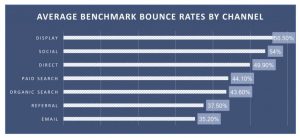For newer investors that are looking for ways to start building on their nest egg, it is important to assess the current state of the options that are available. But if you have no experience with traditional investments, this can seem like a daunting task. Fortunately, it is relatively easy to identify the most commonly traded assets — and then look for ways to capitalize on the opportunities that are presented by the market’s dominant trends. Siding with the dominant trend in the market is generally a good idea because it allows investors to invest in the same direction as the majority in the market.
Assets with a Strong Performance History
The first step in the process is to understand which assets are viable — and which are not. “There are several different choices that allow investors to gain access to assets that have a solid history of performing well in the financial markets,” said Michael Carney, stock market analyst at Teach Me Trading. “Some of the most common choices deal with assets that are tied to the S&P 500, which is the most commonly traded stock benchmark in the world.”
Specifically, the S&P 500 is a collection of 500 of the largest companies in the United States, and its overall value equals the total of each stock that is listed in the index. So, for example, if the S&P 500 loses $ 10 in value on a any given day it would show that the collective value of the the 500 companies in the index has dropped by $ 10. Assets tied to the S&P 500 are generally considered to be some of the safer places for conservative investors to store their money, because of of the companies listed in the index have a long history of stable market performance.
This is an important factor for newer investors to consider, as they should be looking to assess the assets that are viable and those that are not. It doesn’t take much to look back to the global financial collapse of 2008 to see that all of the world’s financial markets are subject to at least some level of vulnerability. So if you are seriously considering the prospect for putting your money to work in an investment, it makes sense to focus on the most commonly traded assets.
Of course, there are other stock benchmarks that give investors exposure to other regions of the world. Common choices here include the UK’s FTSE 100, the German DAX, and the Nikkei 225 in Japan. Each of these stock indices can be access through commonly offered mutual funds. Generally speaking, success or failure in these types of investments depend on the strength or weakness of the underlying economic. All national economies have periods of rising and declining, so it is important to have an accurate assessment of which phase an economy is experiencing before making the decision to invest in its central stock benchmarks.
Traditionally, stocks tend to outperform all other asset classes. This means that stock investments will usually generate greater returns when compared to investments in areas like bonds, precious metals, or real estate. So, if you are looking for ways to put your money to work, and generate returns, stock investing generally tends to be one of the best ideas for accomplishing this. But if you are a new investors, it is a good idea to find stable investments that carry less risk for loss. Each of the stock indices mentioned in this article can be accessed through mutual funds, and this is often considered to be an excellent starting point for newer investors that are looking to start building exposure in the financial markets.
(230)






